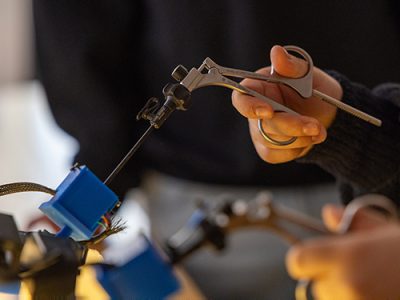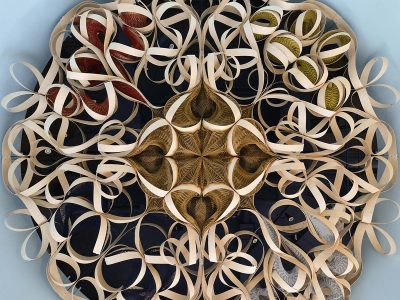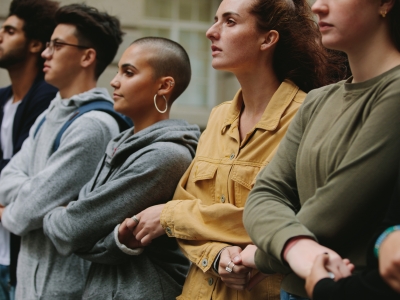Lead image by Konevi / Pexels
By Aaron Ettinger
This article is republished from The Conversation under a Creative Commons licence. All photos provided by The Conversation from various sources.
Aaron Ettinger is an associate professor in international relations at Carleton University.
There’s a saying in sports journalism: “The answer to all your questions is money.” But in the case of Saudi Arabia’s massive sports investment programs during the reign of Crown Prince Mohammed Bin Salman, money is not the whole story.
In a simple sense, there is a clear profit motive. With US$925 billion in assets in 2023, Saudi Arabia’s sovereign wealth fund exists to convert oil revenues into even greater national income.
Last year, the country’s Public Investment Fund reported $36.8 billion in profits. Since 2016, it has spent $51 billion on sports properties.
The point is not to turn bin Salman into the world’s greatest sports impresario. Rather, it’s that he’s seeking to improve the economic and geopolitical situation of Saudi Arabia through sports investments while ensuring the long-term survival of the Saudi regime.
Beyond Newcastle United, LIV Golf
Investing in sports is a common way for developing countries to announce their arrival on the global stage. Instead of one-and-done mega events, Saudi Arabia is pursuing a more dispersed and diverse approach.
The Public Investment Fund’s highest profile investments are well known, especially the 2021 purchase of Newcastle United of the English Premier League and the LIV golf tour that challenged the PGA’s decades-long dominance of the sport.
Beyond golf and soccer, Saudi Arabia has also spent dizzying sums on lower profile investments in esports, wrestling and motorsports. In other games, like chess and snooker, the profit motive is less clear.
The logical conclusion is that Saudi Arabia treats its sports investments as a loss leader — an unprofitable activity meant to stimulate more profitable activity somewhere else. In the words of Public Investment Fund’s 2022 annual report, international investment pools “allow Saudi Arabia to extend its global reach and influence.”
But what does that really mean?
Saudi Arabia and ‘Sportswashing’
The conventional term for the strategy used by Saudi Arabia is sportswashing, the practice of reputation-laundering in the hopes that a cleaner national image will translate into soft power on the world stage.
But that explanation doesn’t go far enough. For bin Salman, the suite of sports investments and properties is only a small part of a larger strategy to prepare Saudi Arabia for a 21st century when global oil demand is expected to fall by mid-century and geopolitics will become more complicated.
This is no secret: Saudi Arabia’s official grand strategy — Vision 2030 — envisions the complete modernization of the country’s economy and foreign policy. Saudi Arabia’s sports diplomacy is therefore part of a broader geopolitical strategy to prepare Saudi Arabia for an era of multipolarity, when power is distributed among several states.
Sports diplomacy also normalizes western financial and political engagement with the Saudi regime. Internationally, bin Salman wants to cultivate economic and security relationships with entities whose interests align with those of the Saudi royal family and the Saudi state, thereby ensuring the long-term health of both.
Regular interactions between Saudi Arabia and the West create an understanding that Riyadh is a “normal” place to do business — and if it’s good business, there is no reason to risk the relationship with too much rancour over its authoritarianism and abysmal human rights record. Sports investing, in short, is a Saudi hedge against western abandonment.
The allure of the big payday
To western eyes, the most troubling implication of Saudi sports investment is the normalization of authoritarian capitalism — economic freedom without political freedom — as a feature of the emerging international order.
Along with China, Russia, Singapore and others, Saudi Arabia represents an alternative to western democratic capitalism as a pathway to development.
This would be surprising to a previous generation of scholars and policymakers who once thought that free markets and free societies were a self-reinforcing phenomenon.
But given the staying power of authoritarian capitalism, doing business with dictators and strongmen has become inevitable and even desirable in some cases. In the sports world, few have resisted the charms of a huge payday.
Closely related to authoritarian capitalism is democratic backsliding. Around the world, the quality of democracy and freedom is eroding, and the slow-drip normalization of economic intercourse with authoritarian capitalists is part of that erosion.
How to proceed?
So can anything be done? Western states have options, but they’re limited.
After all, Saudi Arabia’s investments are legal and eagerly sought after by both private and public sectors.
Western officials can put up resistance to the awarding of mega events to authoritarian states. But mewling about problematic hosts means little unless liberal democracies are prepared to pay the hosting costs themselves, which they are increasingly unwilling to do.
Meanwhile, authoritarians are eager to host mega events and attract the prestige that comes with them. Currently, for example, Saudi Arabia is the sole bidder for the 2034 FIFA World Cup.
Countries could try regulatory intervention to delimit the extent of Saudi influence. National security is often used as a pretext for blocking foreign investments in strategically important sectors, like ports and 5G wireless networks.
Saudi plan is working
But golf and video games do not rise to the level of national security concern, so American regulators are unlikely to step in. Political intervention from the United States Congress or the White House is even less likely. Saudi Arabia is a key part of the American strategy on the Middle East to confront Iran, and quibbling too intensely about human rights or sports investment is not worth the strategic costs.
The genius of Saudi Arabia’s enterprise is that it’s power projection by consent. Investors and fans want what bin Salman is selling, governments have limited recourse and critics are left to grasp at standard, out-dated arguments.
For Saudi Arabia, however, its sports charm offensive is about more than money. It’s about an investment in the future prosperity and security of the kingdom and the longevity of the Saudi dynasty. So far, the plan is working.
![]()
Monday, October 21, 2024 in The Conversation
Share: Twitter, Facebook



